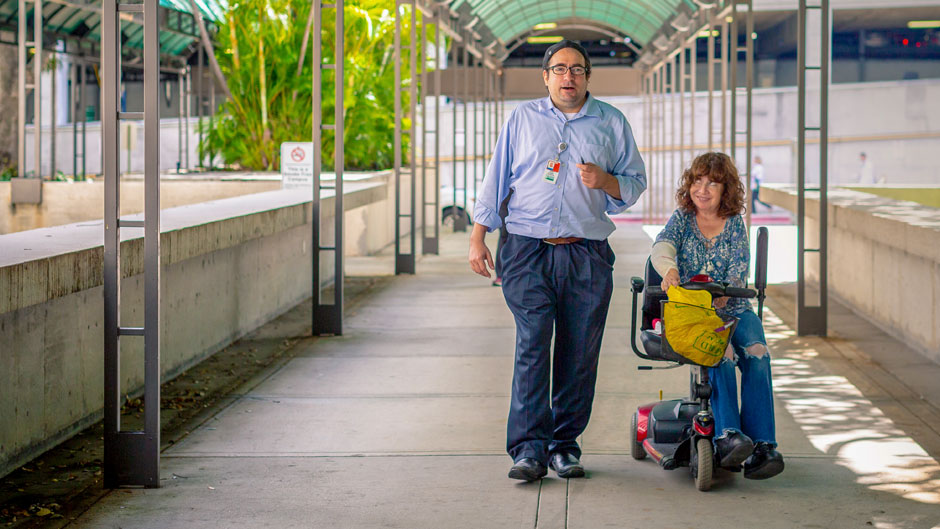“Asper-whatcha-ma-call-it?” Jairo Arana vividly recalled the entire conversation and confusion that he experienced when his psychiatrist shared, that at 40 years old, he was diagnosed with Aspergers.
“My jaw dropped,” said Arana, clinical project coordinator for the University of Miami Miller School of Medicine’s (MSOM) Mailman Center for Child Development. “What does ‘on the autism spectrum mean?’ My mind raced with questions and needless to say, I was not pleased to learn about this thing called Asperger’s,” he added.
That was just over five years ago.
Today, Arana is employed full time at the U. In addition to his professional contributions, he advocates to empower adults on the spectrum and works to educate the UM community on ways to embrace diversity and invite people with intellectual and physical disabilities into the workforce.
“People with autism and other disabilities have skills that allow them to do many things. The hard part is actually knowing how to use those skills to get a job,” said Arana.
He knows this all too well. Most of his life, Arana struggled in school and social settings but without a formal diagnosis he never truly understood why. He had a passion for writing and film but even as an undergraduate in UM’s School of Communication, his anxiety and depression sometimes interfered with his studies.
“It has been a challenging journey but I am thankful for the resources available through the University of Miami-Nova Southeastern Center for Autism and Related Disabilities (UM-NSU CARD).”
Once Arana learned about the opportunities through UM-NSU CARD, he didn’t hesitate to get involved and follow the advice of UM experts. He joined a social networking group for adults on the spectrum and as he became more comfortable he participated in Job SEEKers, an employment program with the goal of helping prepare adults with autism spectrum disorders (ASDs) for the job search process.
“Through UM-NSU CARD, I was referred to participate in UM’s Self-Advocate Leadership Training (SALT) program and my life was forever changed,” said Arana.
SALT, which is led by Shelly Baer, director of leadership training initiatives at MSOM, was established with the vision of providing individuals with disabilities the capacity for self-determination, independence, and the ability to participate in their communities in meaningful ways.
For Arana, and the other 40 SALT graduates, the program, and Baer have done much more than that.
Today, Arana works directly with Baer on various projects and programs that are run through MSOM’s Mailman Center for Child Development, and he is quick to comment that he’s just getting started. As an advocate for himself and others with disabilities he has attended the Disability Policy Seminar in Washington, D.C., co-authored training manuals, and worked as an instructor for UM-SALT, and serves as a leader in his community.
As his supervisor and mentor, Baer advocates on the importance of employers being open to hiring individuals with disabilities. “Hiring Jairo was one of the best decisions we made at the Mailman Center. He is a delight to work with, he is enthusiastic, creative, rarely misses days of work, and is tenacious in finding solutions to problems,” she said.
Arana agreed. “There’s a lot of work to be done. Not just for me, but all of us have a lot to accomplish. I was only diagnosed a few years ago but I’m more than ready and willing to jump into the trenches.”

